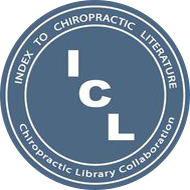Objective: Two whiplash severity grading systems have been developed: Quebec Task Force on Whiplash-Associated Disorders (QTF-WAD) and the Croft grading system. The majority of clinical studies to date have used the modified grading system published by the QTF-WAD in 1995 and have demonstrated some ability to predict outcome. But most studies include only injuries of lower severity (grades 1 and 2), preventing a broader interpretation. The purpose of this study was assess the ability of these grading systems to predict clinical outcome within the context of a broader injury spectrum.
Methods: This study evaluated both grading systems for their ability to predict the bivalent outcome, recovery, within a sample of 118 whiplash patients who were part of a previous case-control designed study. Of these, 36% (controls) had recovered, and 64% (cases) had not recovered. The discrete bivariate distribution between recovery status and whiplash grade was analyzed using the 2-tailed cross-tabulation statistics.
Results: Applying the criteria of the original 1993 Croft grading system, the subset comprised 1 grade 1 injury, 32 grade 2 injuries, 53 grade 3 injuries, and 32 grade 4 injuries. Applying the criteria of the modified (QTF-WAD) grading system, there were 1 grade 1 injury, 89 grade 2 injuries, and 28 grade 3 injuries. Both whiplash grading systems correlated negatively with recovery; that is, higher severity grades predicted a lower probability of recovery, and statistically significant correlations were observed in both, but the Croft grading system substantially outperformed the QTF-WAD system on this measure.
Conclusions: The Croft grading system for whiplash injury severity showed a better predictive measure for recovery status from whiplash injuries as compared with the QTF-WAD grading system.
Author keywords: Whiplash injuries, Surveys and questionnaires, Disability evaluation
This abstract is reproduced with the permission of the publisher; click on the above link for free full text.
|
